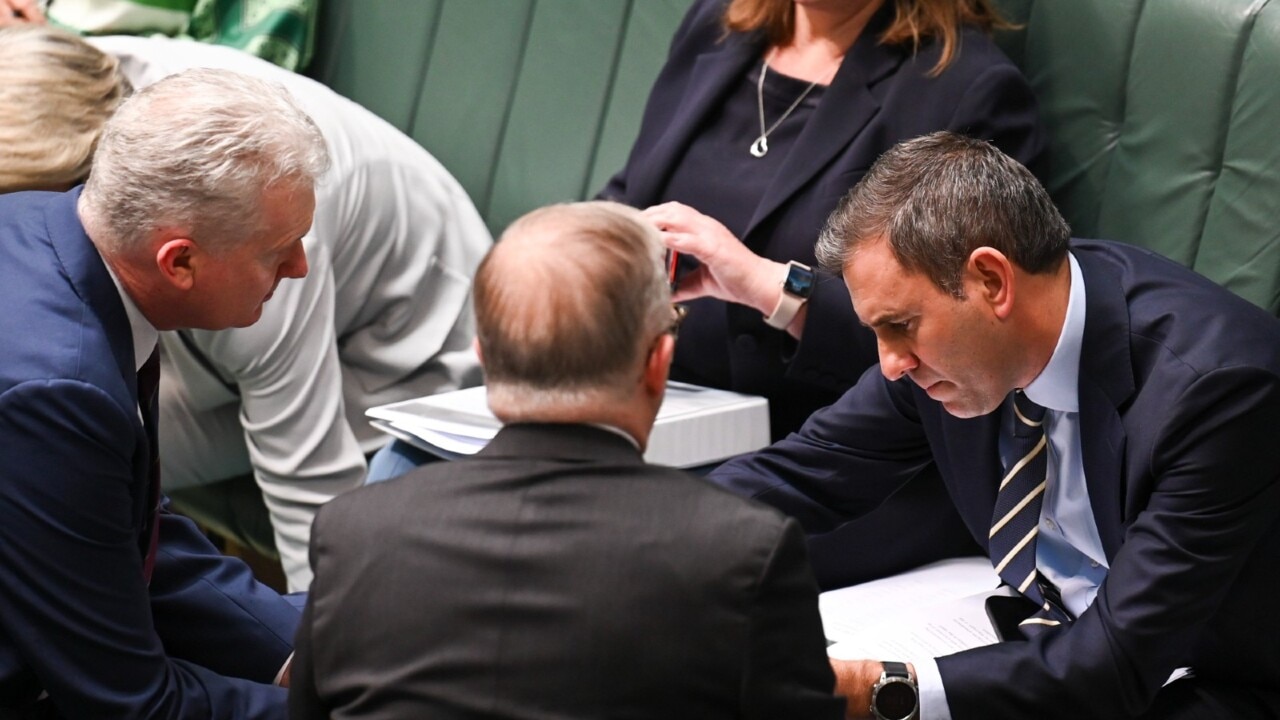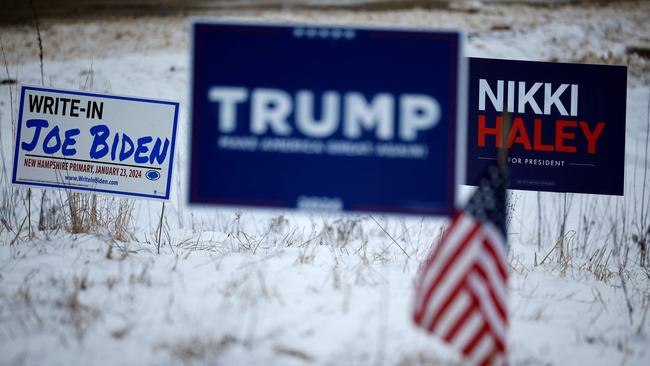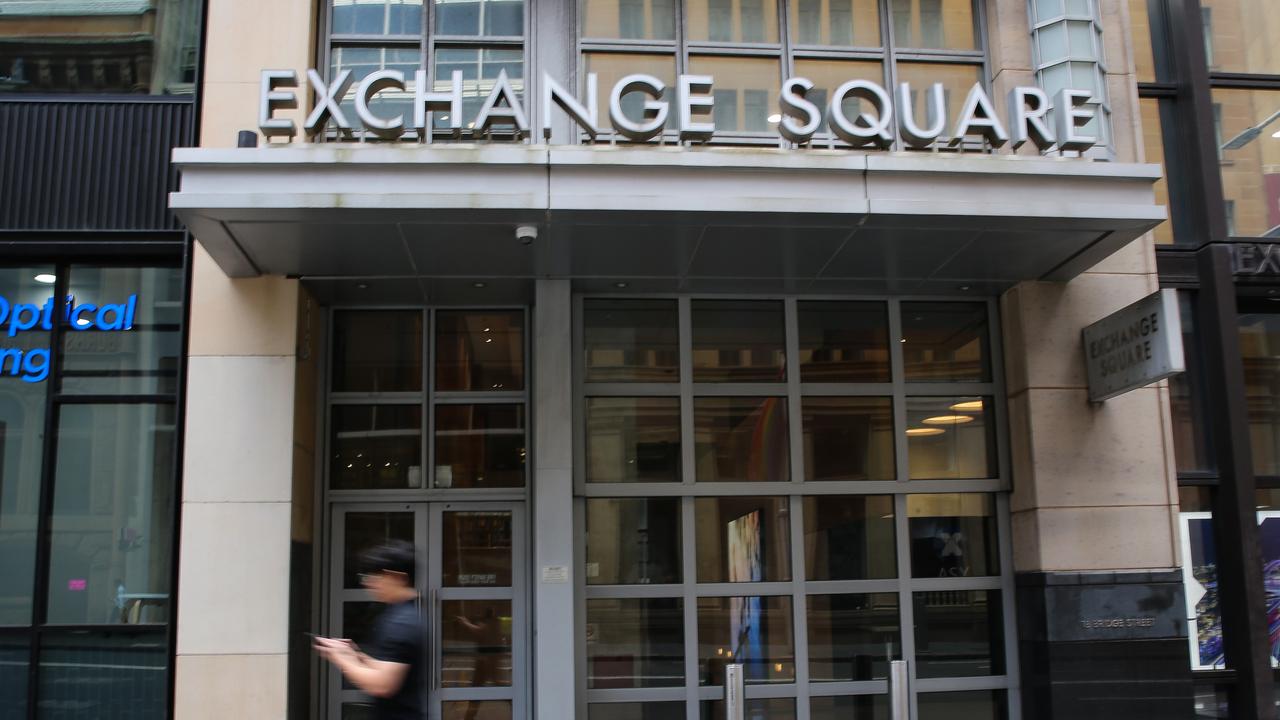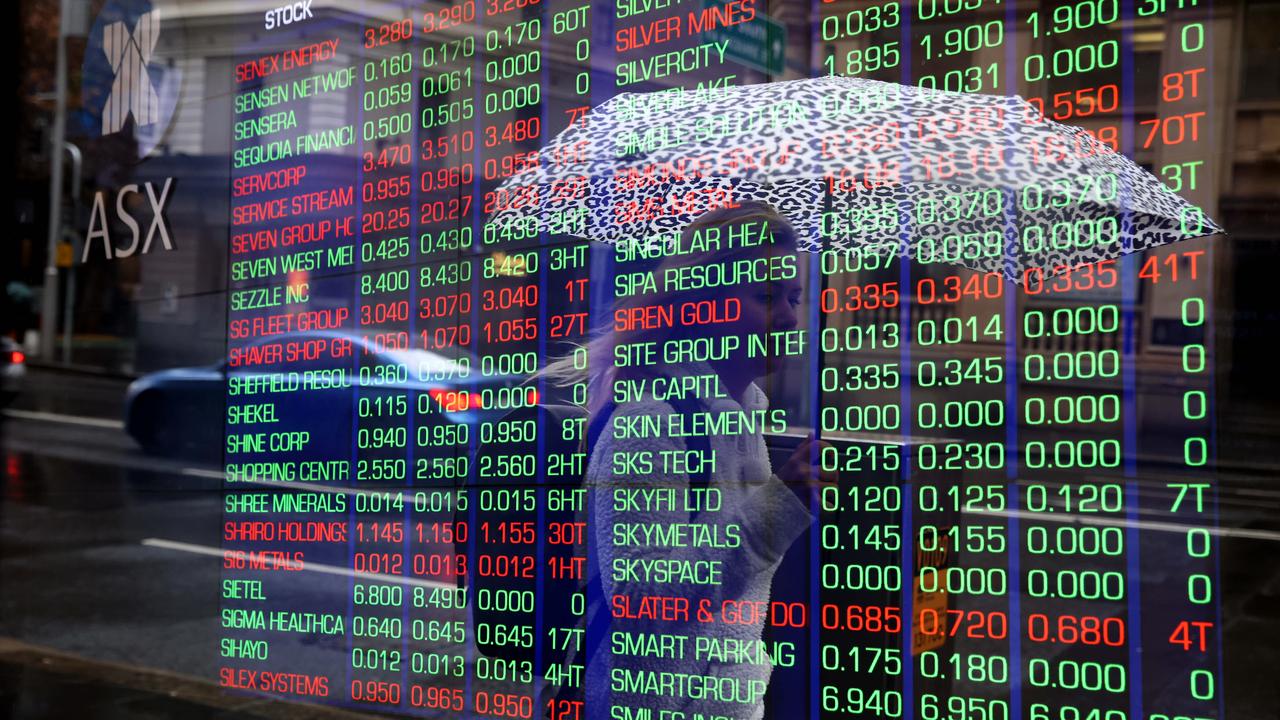Future Fund wary amid risks as rate cuts ‘priced in’
Peter Costello says it’s ‘far too early’ to be talking about RBA cuts, while a deep division in US politics may have big financial consequences.

The Future Fund thinks the sharemarket is too optimistic about interest rate cuts and potentially isn’t fully accounting for risks associated with events like the upcoming US Presidential election.
In a portfolio update, Future Fund chairman Peter Costello said there are signs that price rises are finally moderating, but inflation won’t be tamed until it is back within the Reserve Bank’s target band.
For the 2023 calendar year, the sovereign wealth fund delivered a positive return of 8 per cent versus its investment mandate target of 8.4 per cent.
Its 10-year return was 8.2 per cent per annum versus a target of 6.9 per cent.
The Future Fund hit a record value of $211.9bn as of December 31, earning $15.6bn in a year.
As of November, Australia’s inflation rate had almost halved from a peak of 8.4 per cent in November 2022 to an almost two-year low of 4.3 per cent. The latest CPI data are due next week.
However, Mr Costello said inflation is still “well above” the Reserve Bank’s 2-3 per cent target.
“Strong labour markets, wage pressures and high energy prices are still feeding into price pressures,” he said.
‘‘Although inflation has fallen from its peak, it is still well outside the target range and won’t be tamed until it is back within the target band.
While markets rebounded on an expectation that rates could be lower this year, there is still a way to go.”
In a media briefing, he said a “big rally” in stocks in the December quarter was “premised on the fact that people thought interest rate rises were over” and could fall in 2024.
“The fact of the matter is we’re still well outside the 2 to 3 per cent band … and until we see further reductions in inflation, it’s far too early to start calling interest rate cuts.
“So we think that equity markets have priced in a peak and maybe a fall in interest rates already, and they may have done that a little too early.
“Nonetheless, of course we hope that inflation has peaked, and we hope that there will be some interest rate relief through the course of this year. We just think it’s far too early to call it.”
It came as NAB’s monthly business survey found “clear signs of a further easing in input cost pressures”, including for labour and purchases, and a sharp fall in retail price growth in December.
Asked about where interest rates may settle in the longer term, Mr Costello said it was “probably a little lower than the current cash rate, but not necessarily a lot lower than the current cash rate.”
“If inflation were contained … I would expect rates to come down a little but not obviously not back to the emergency levels they weren’t before (during) Covid,” he said.
On the US election, Mr Costello said it “looks like it’ll be a rerun between Biden and Trump.”

“Certainly Trump appears to be the Republican candidate, and you’d have to say, more likely than not, that Biden will be the Democrat candidate,” he said.
“I think that means there will be another close contest and perhaps even a contested outcome.”
“What worries me about this is it shows you how divided the United States really is.
“I can basically rerun an election from four years ago and essentially come to a very evenly divided contest, and that’s just the presidential election.
“So in addition to that, we’ve got the House of Representatives, and we’ve got the Senate.
“In order to legislate, you need all three arms and they’re all deeply divided and deeply polarised.
“The problem with this is that they regularly need to increase their debt ceiling.”
Mr Costello noted that the conditions under which the US should increase its debt ceiling were often “hotly contested” and the potential for US government shutdowns were “a recipe for instability.”
“I worry that this is going to work its way into perceptions of US Treasuries, which is, you know, the cornerstone of the global financial system,” Mr Costello warned.
“People are going to think maybe there’s a credit risk there if the US government can’t automatically renew them (debt increases) and may not be in a position to automatically roll over (debt) as Treasury bonds, and I see that as a source of stability.”
“So I’m not getting into who I think should win or, or what should happen,” he said.
“That’s a matter for Americans, but I can see big financial consequences coming as a result of a deeply divided political system.”
The Future Fund holds $20.4bn in Australian equities, or 9.6 per cent of the fund. Its largest holding is equities in developed markets at 17.8 per cent, followed by 15.5 per cent in alternative investments and 15.1 per cent in private equity.
Chief executive Raphael Arndt said in the past 18 months the fund had made nearly $70bn in changes to the portfolio in adapting with the changing investment landscape.
“The changes we have made are designed to provide resilience and flexibility to the changing investment environment,” he said.
“The portfolio is positioned around a neutral risk setting with a focus on resilience while we seek opportunities to generate attractive long-term returns.”
Mr Arndt said the Future Fund has a lot of exposure to AI related businesses, particularly through its venture capital portfolio.
However, he said the impacts “can take years to play out” and it was “very unclear who the winners are gonna be.”
Mr Arndt said there were “few champions” of AI and the Future Fund has some exposure to them, but “not too much”.
He added that the fund has many investments in AI-related companies through its venture capital program, noting AI is “one of the shining lights in terms of potential for upside in the economy, but it “certainly has some risk around it.”



To join the conversation, please log in. Don't have an account? Register
Join the conversation, you are commenting as Logout